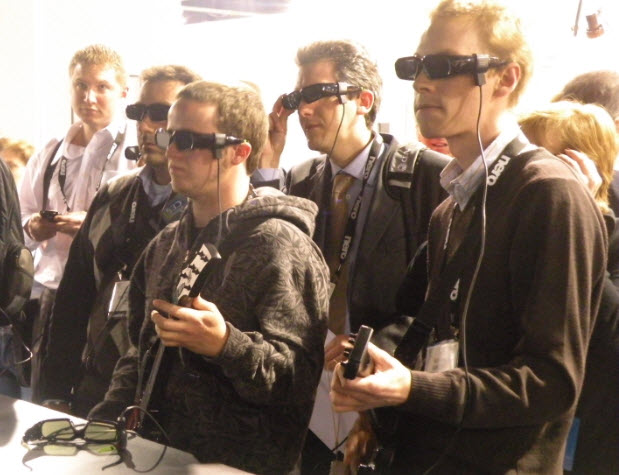 Apple has filed for a patent that would involve taking multiple pictures and meshing them together to create a 3-dimensional image — a process that would include the use of two cameras instead of one — according to AppleInsider.
Apple has filed for a patent that would involve taking multiple pictures and meshing them together to create a 3-dimensional image — a process that would include the use of two cameras instead of one — according to AppleInsider.
It remains to be seen if Apple will jump on the 3D bandwagon, but many companies have already embraced the technology. A number of phones on the market already use 3D cameras and displays. The EVO 3D, which debuted at CTIA Wireless 2011, uses a pair of cameras on the back of the phone to capture high-definition 3D video.
The patent indicates the technology would allow the iPhone to shoot still images in 3D and also record high-definition 3D video, according to the report.
Both the EVO 3D and Nintendo’s latest handheld gaming device, the 3DS, use a technology called a parallax barrier — which basically only lets each eye see a certain set of pixels on the screen. That means each eye sees something different, and the brain combines the images. The net effect is an illusion of depth and a 3D image without needing cumbersome 3D glasses.
The patent doesn’t indicate whether Apple’s next iteration of the iPhone would carry a similar screen using parallax barrier technology. But 3D has not emerged as the dominant new trend in display technology, as there are some complaints about whether it places undue strain on eyes. The Nintendo 3DS, for example, warns users to take a break from time to time so they do not strain their eyes.
Apple is expected to delay the release of its next iPhone until the fall. That would give the company more than enough time to introduce a number of new pieces of technology to the device, including access to the next generation of wireless networks.
VentureBeat's mission is to be a digital town square for technical decision-makers to gain knowledge about transformative enterprise technology and transact. Learn More
